From all the breathless coverage detailing Google's I/O 2015 conference announcements, you might not have noticed that virtually all of what Google had to show this year were things Apple had already introduced over the past year (or long ago). Once hailed as being "more innovative" and faster at introducing new features, Android has become a slow follower.
Google I/O 2015 = WWDC 2014
Google started out touting HBO Now for Android, after Apple debuted the new service as exclusive to iOS in early April. From there, the company detailed the next Android "M," which plans to throw away all the confusing, flaw-riddled app permissions of Android and go with the exact same user request system introduced years ago by Apple's iOS, where apps that want to use the camera or access contacts simply ask to do so first.
Android's unintuitive copy and paste will also eventually be replaced with a new system that takes its design cues from iOS 3.0 (from 2009), as noted by John Gruber.
Google Pay similarly gives up on the failed implementation of Google Wallet to identically copy Apple's implementation of Apple Pay. And to make this workable, Android will also look to iOS in providing OS-level fingerprint authentication. The problem with this is that few Android phones have a functional fingerprint reader, and those that do have rolled their own support for competing payment systems, like Samsung Pay.
Apple introduced fingerprint support in iOS two years ago, and Apple Pay last year. Since then, every major bank (and many of their smaller competitors) in the United States have been relentlessly advertising Apple Pay on Apple's behalf. Additionally, even credit processors like Braintree have been screaming about their support Apple Pay from their billboards, despite Braintree being owned by PayPal, ostensibly a direct competitor of Apple Pay.
Google also introduced the same kinds of smart sleep technologies that Apple introduced for both iOS and OS X over the past years, in recognition of the fact that Android devices generally have less usable battery life even while many devices pack on bigger heavier batteries than a comparable iPhone.
And despite buying Nest and inheriting the company's "Thread" Internet of Things technology (now barely a year old), Google has now started over to roll its own new implementation of device control designed to compete with HomeKit, which Apple introduced a year ago (and is already appearing in silicon from major chipmakers).
One unique initiative Google introduced relates to blurring the app and the web browser, with browser tricks to make web pages look more like apps, "Now On Tap" to spy into what apps are doing and web hyperlinks to launch apps and automatically go to a specific function (what could possibly go wrong here, right?). That helps Google wrangle itself into apps, at least on Android, an area where the company has been frantically locked out as the world goes mobile. However, this ploy seems to be a little too little, a little too late, as apps are already well established with barriers to a web-like global search engine.
Google losing control over Android
Even if Google's catch-up efforts with Android M went off without a hitch, most users won't see any benefits for years. After all, it's been a year since Google introduced Android 5.0 L, yet less than 10 percent of Google Play's installed base is currently using it, according to Google itself.
Worldwide, adoption of Android L is even lower, largely because Google's primary effort with L was to push adoption of a streamlined, web-like "Material Design" appearance to weaken the differentiation of its licensees, something Android's licensees don't particularly like because it isn't in their interest to all look the same, merely commodities for Google's ad ambitions to play like pawns.
In stark contrast, Apple's iOS 8 began immediately benefitting users. Nearly a year after it was first introduced at WWDC last summer, it now makes up 82 percent of the installed base of Apple's mobile users. Apple's latest iOS 8 wasn't without flaws or problems, but it did introduce compelling features that sparked rapid deployment by users themselves. Further, outside of those with aging hardware (like the now five year old original iPad), virtually anyone who wants iOS 8 can get it.
There were also quality control issues and problems with getting Google's Android L to work on Android hardware, but that included brand new models within Google's own Nexus line.
In fact, Google's own Nexus 7 tablet (once the star of Google I/O, before the company realized it was not good at hardware) never really got L working well, simply because it couldn't handle the new OS, despite Android L also bending over backward to accommodate simpler, cheaper hardware as a primary goal.
Less than ten percent adoption after a year— particularly within Google's own Play-savvy users— is pretty bad for any operating system, let alone in the mobile world where new OS software makes a huge difference in usability, security, reliability and user satisfaction.
It's no wonder why iPhone 6 models have been eviscerating Android at the high end, leaving Google's mobile OS project stuck at the bottom end where there's no profits, little excitement and no reason to celebrate. That hasn't stopped Google's non-stop media cycle of euphemistically portraying Android as something other than a disappointing, directionless, rewardless effort in busywork.
Google likes to talk about Android as being "popular" and winning in bulk, without clarifying that the volumes of devices shipping with Android are mired in old versions of the software that don't support the features Google is desperately promoting, while— at the same time— the most "successful" and "popular" volumes of Android devices are also occurring in a market Google has been completely shut out of: China.
If Android is winning and so popular, why is Google targeting iOS?
Google Photos, a feature salvaged from the ashes of the failed Google+ social network, is being introduced at launch for iOS, much like all the other Google apps. Google relies on iOS for more than half of its mobile ad revenues. That's because iOS has attracted a valuable demographic of users, while Android hasn't.
This is evident from another significant story from Google I/O: "CocoaPods," an effort by Google to facilitate the incorporation of its shared libraries for Analytics and Google Maps into third party iOS apps. Google is fighting to stay on iOS. That's a big difference from the 1990s, when Microsoft actively thwarted the Macintosh with inferior versions of its apps and frequently ignored Apple's platform entirely.
In contrast, Apple hasn't been releasing its popular apps for Android, ranging from Keynote to iMovie to its own version of Photos. Apple's iCloud doesn't even extend support to Android, the way iTunes did in order to help make iPods popular among Windows users.
Apple ported many of its Mac apps to Windows because Windows was the important, popular PC platform in the early 2000s. It is not important for Apple to support Android today. The installed base of Android users are not an essential audience to target, and are not even very attractive.
Google knows this, third party developers know this, and Apple certainly knows this, even if members of the tech media work effortlessly to paint a false picture that Android is winning, popular and successful, just because it has a large installed base, more than half of which is actively running a version of Android from the era of iOS 6 or earlier.
Google's star Android licensee is falling
Look at the most successful (perhaps "only successful") Android licensee: Samsung. While it struggles to remain relevantM in the face of iPhone 6, Samsung has also fought with Google for control of the software powering its smartphones as sales of its high end, profitable models have collapsed.
Google has tried to make Android J, K and L better for Google, at the expense of its licensees. Android M packs in additional efforts to wrestle control away from Samsung and pigeonhole its licensees into basic device makers reminiscent of the profitless PC makers who served Microsoft's interests a decade or two ago.
However, Google has done nothing to really help its licensees take back any territory from Apple. Instead, Android licensees have battled among themselves and against Google, creating fractions and incompatibilities while introducing their own ways to do things, often in direct competition with Google.
In fact, while the tech media overall has worked hard to propagate Google's official version of events— such as portraying China's Xiaomi as being a grave threat to Apple— the reality is that Xiaomi's success comes at Google's expense. Every cheap Xiaomi phone replaces Google Play, Gmail, Google+ and Google Ads with non-Google services that Google can't compete against.
Of the two largest markets for smartphones on earth, Google is completely locked out of the larger one that's growing the fastest. Coincidently, Apple is now one of the very few Western companies to be successful at all in China, and Apple has been extremely successful. Of the two largest markets for smartphones on earth, Google is completely locked out of the larger one that's growing the fastest
Even outside of China, Android is doing very little to back up Google's revenues or earnings. Mobile ads are paying less even as Google's desktop ad market plateaus as users increasingly go mobile.
Further, Google's tentacles in iOS are getting cut off and replaced with default iOS services ranging from Siri search to Apple's own Maps, iCloud, iMessage and even initiatives like iAd. Apple is getting better at services far faster and more effectively than Google is making any inroads into selling hardware.
Even worse for Google, Samsung is now actively pushing its own Android competitor Tizen, initially on its "smartwatches" but soon on its own phones, an effort it has been working on since at least 2011, according to documents that surfaced during its patent infringement trial.
Apple has never been more successfully positioned
While Google's desktop PC ad empire crumbles and its mobile partners fight it for the meager dollars available within the Android ecosystem, Apple's computer business has never been better. Further, Apple's partners— ranging from hardware and software developers to banks and enterprise customers— are actively advertising and working to promote its initiatives, ranging from iOS apps to Apple Pay, HomeKit, Health, Metal and Swift.
And those were just a few of the headline initiatives Apple launched last year around WWDC. Apple also introduced new technologies including Continuity, which not only benefitted existing Mac and iOS users, but also laid a foundation for Apple Watch as a Handoff wearable that can take calls from your phone.
Virtually everything Apple introduced last year was immediately relevant to the majority of its users and partners. In contrast, Google has merely introduced a series of projects, much like the old Apple of the early 1990s: introducing scattershot, ineffectual but grandiose plans on the level of PowerTalk and QuickDraw GX.
Apple's new introductions at last year's WWDC 2014 were far more novel and interesting than this year's Google I/O. With Apple's vast gulf over Google in earnings, employees, ecosystem and frankly, competence in implementation and deployment, you can expect that WWDC 2015 will launch Apple even further ahead, setting up support for new products, new capabilities and new technologies.
 Daniel Eran Dilger
Daniel Eran Dilger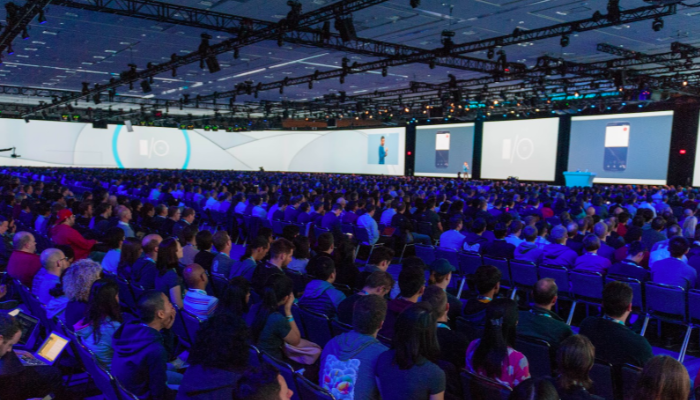
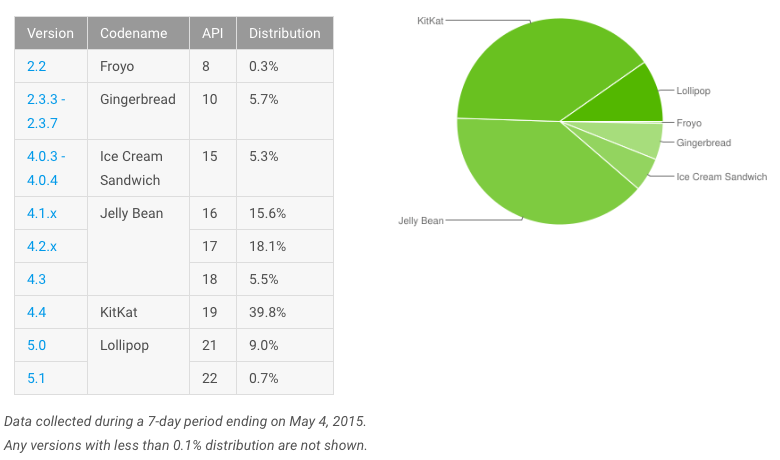
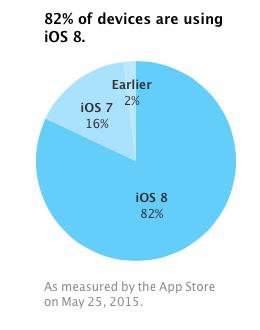
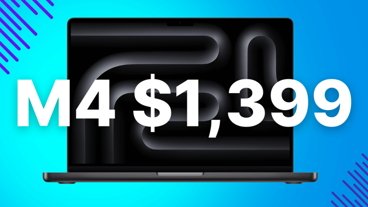






-m.jpg)






 Christine McKee
Christine McKee
 Malcolm Owen
Malcolm Owen

 Sponsored Content
Sponsored Content

 Amber Neely
Amber Neely

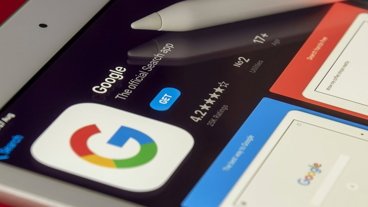
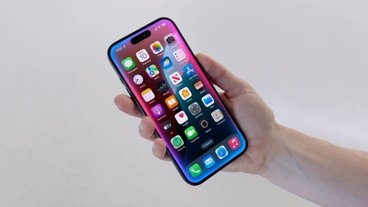
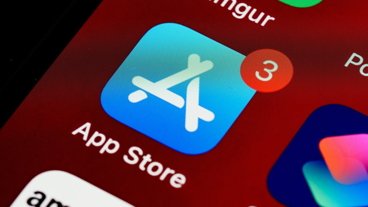







295 Comments
It would be really satisfying for Apple to blow our socks off with some astounding software innovations no one has been expecting this upcoming WWDC. What are your expectations?
It seems I'm not the only one that thought google's IO was either yawn-inducing, or transparent attempts at upping the level of privacy invasion seemingly solely for the purpose of further profiling customers. Many aspects remind me of Microsoft when they had ran out of ideas.
Well said, it's about time that one of the major tech sites brought this to everyones attention!
Since i saw what was announced for Android M, especially Android Pay, i knew they just copied Apple and just changed the name.
The way Android Pay works, looks and feels is the exact same as Apples, but i bet that it will not work as well when it comes to the real world.
I literally think Google should have put a slide up that says we now have Apple Pay, and then crossed it out and put a stamp on it with Android, then they could have gone on to say, we just copied the entire thing, so here you go, maybe it'll work as good as Apple Pay, but probably not.
It would be really satisfying for Apple to blow our socks off with some astounding software innovations no one has been expecting this upcoming WWDC. What are your expectations?
Actually, I don't think there's an appetite for anything of the sort- iOS users mostly want bug fixes and performance improvements for existing features, not grandiose new 'innovations'. Furthermore, Apple has devoted much of their engineering resources to Watch OS over the past year. Expect the following
-better maps
-optimizations
-expanded Swift APIs
-lots of refinements to Watch OS
Google is becoming more and more like Samsung. Rush ahead to do it first and screw it up, then wait for Apple to do it right and then go back and fix it by copying Apple's way.
Remember in 2011, PayPal sued Google for stealing their entire mobile payment team and Google still screwed it up.
http://money.cnn.com/2011/05/27/technology/paypal-sues-google/
I think Apple will kick Google's butt in Mapping and Searching very soon, not to mention Advertising just yet.
Time will tell.